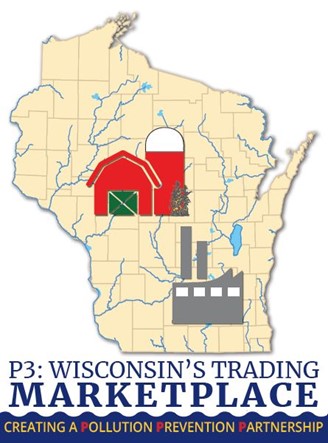FOR IMMEDIATE RELEASE:
March 3, 2020
Contact: Senator Robert Cowles: (608) 266-0484
Innovative Nonpoint Source Pollution Solution Signed into Law
Pollution Prevention Partnerships Will Help to Advance Water Quality and Rural Economies
MADISON– Senator Robert Cowles (R-Green Bay) and Representative Joel Kitchens (R-Sturgeon Bay) released the following statement after 2019 Senate Bill 91, known as P3: Wisconsin’s Trading Marketplace to Establish More Pollution Prevention Partnerships, was signed into law as 2019 Wisconsin Act 151. This legislation is authored by Senator Cowles, Representative Kitchens and Senator Jerry Petrowski (R-Marathon) and co-sponsored by nearly fifty other Senators and Representatives:
“Today’s action sets Wisconsin on a course to create the first statewide water quality pollutant trading clearinghouse,” said Senator Cowles. “While the goal is to create a reduction in nutrients entering waterways to help clean up our waters, these Pollution Prevention Partnerships would be beneficial to all Wisconsinites with numerous ecological, financial, and recreational benefits. By bringing more farmers to the table and incentivizing them to implement proven land conservation strategies, coupled with the opportunity for industry to comply with permit requirements in a more cost effective manner, this new law has the potential to make a positive impact on our state’s environment and economy. I applaud the Governor’s action on this innovative approach to advance water quality and rural economies, and I hope to see Act 151 implemented as soon as possible.”
P3: Wisconsin’s Trading Marketplace represents an exciting and innovative opportunity to provide farmers and other nonpoint sources with some financial incentive to implement more advanced land and water management practices. This bipartisan effort will promote more water quality trades by introducing a third-party clearinghouse into the currently inflexible pollutant trading process to create a marketplace for trades.
“This bill had the support of all the major agriculture, industry and conservation groups,” said Representative Kitchens. “Whenever we can have these groups working together cooperatively to solve our water issues, you have an opportunity to make real progress. This is an innovative approach and I am very proud to see Wisconsin leading the way.”

These mutually beneficial water quality trades allow nonpoint-source dischargers to create a reduction in total pollutants entering a waterbody, quantified as credits, to be purchased through a central clearinghouse. These credits will provide necessary pollution reduction relief to a point source, such as a municipal wastewater treatment plant or cheese factory, to comply with further ratcheted requirements of their wastewater permit. Trades would take place within the largest hydrologic area possible while still resulting in a water quality improvement to the waterbody.
###
